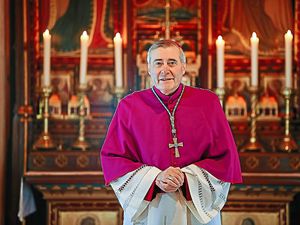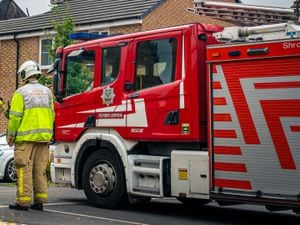Bishop hits out at 'trivialisation of funerals' – says 'dead need prayers not praises'
A bishop has criticised the 'trivialisation of funerals' saying 'the dead do not need our praises, but they do need our prayers'.

The Catholic Bishop of Shrewsbury, the Rev Mark Davies, made the comments in a pastoral letter to the people of the Diocese of Shrewsbury – which stretches across Shropshire, Cheshire, parts of Merseyside and Greater Manchester.
He used the letter to encourage Catholics to 'hold fast to Christian faith and practice at funerals', and expressed concern at the rise of 'no-fuss funerals'.
The Bishop questioned whether the recent 'trivialisation of funerals' had led people to dispense with the idea of having a funeral at all.
Christian funerals, he said, brought people together to pray for loved ones in hope.
In his letter, read out in all churches and chapels of the diocese over the weekend of Sunday, October 29, Bishop Davies urged Catholics to use November – the month traditionally devoted to remembering the departed – to pray for “all who have gone before us” and to recognise the importance of Christian faith and practice in the hour of death knowing the bond between us “is not broken by death.”
He said the departed need “our prayers rather than our praises” and told the faithful that “we are called to pray for those who have died”, adding that “in her funeral rites the church desires to commend our souls to God’s merciful love and plead for our forgiveness just as in every Mass, we pray and intercede for all the faithful departed.”
“It would be a mistake to think of a funeral merely as the celebration of a life now ended,” said Bishop Davies, concluding that in prayer and in mass offered for the souls of the departed is found “the greatest consolation of those who mourn”.
Bishop Davies said: “In my early years as a priest, I sometimes prayed the last prayers at a graveside where no one was left to mourn.
"The funeral directors out of charity, would join me to form a congregation and respond to those prayers.
“Sadly, we are now seeing funerals being promoted commercially at which no one is to be present, and no prayer is to be offered. ‘No fuss’ funerals seem devised to prevent participation by family, friend or community.
“The recent secularisation and even trivialisation of funerals may have led people to abandon the thought of having a funeral, as they see no purpose.
“We must surely be concerned for the human impact of these developments and recognise the loss of the Christian vision of what should mark our passing from this world.
"For a Christian funeral is not the disposing of a body, but a calling together in prayer and in hope. November reminds us of this final duty of charity we owe to each other.”
The Bishop added: “We are called to pray for those who have died. In her funeral rites the church desires to commend our souls to God’s merciful love and plead for our forgiveness just as in every mass, we pray and intercede for all the faithful departed. It would be a mistake to think of a funeral merely as the celebration of a life now ended. As I wrote to you a decade ago, the dead do not need our praises, but they do need our prayers.”





